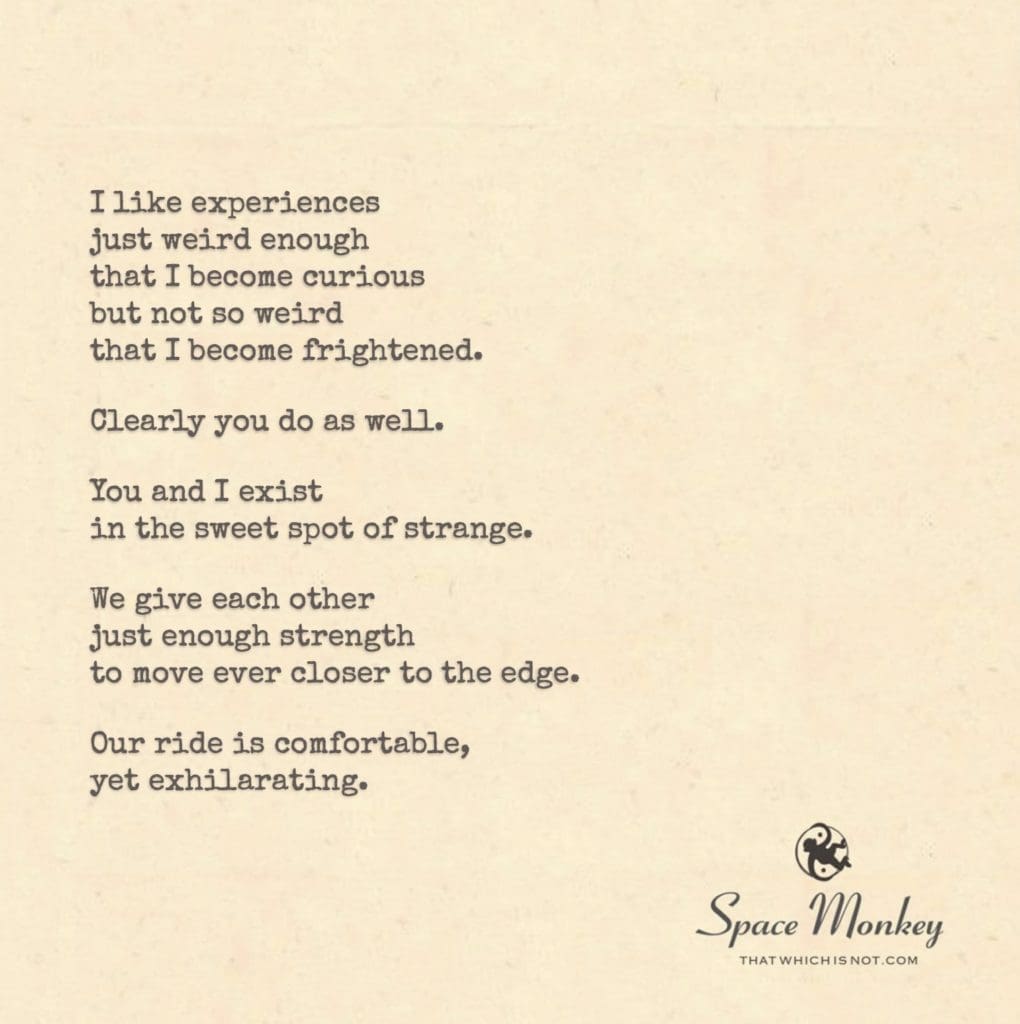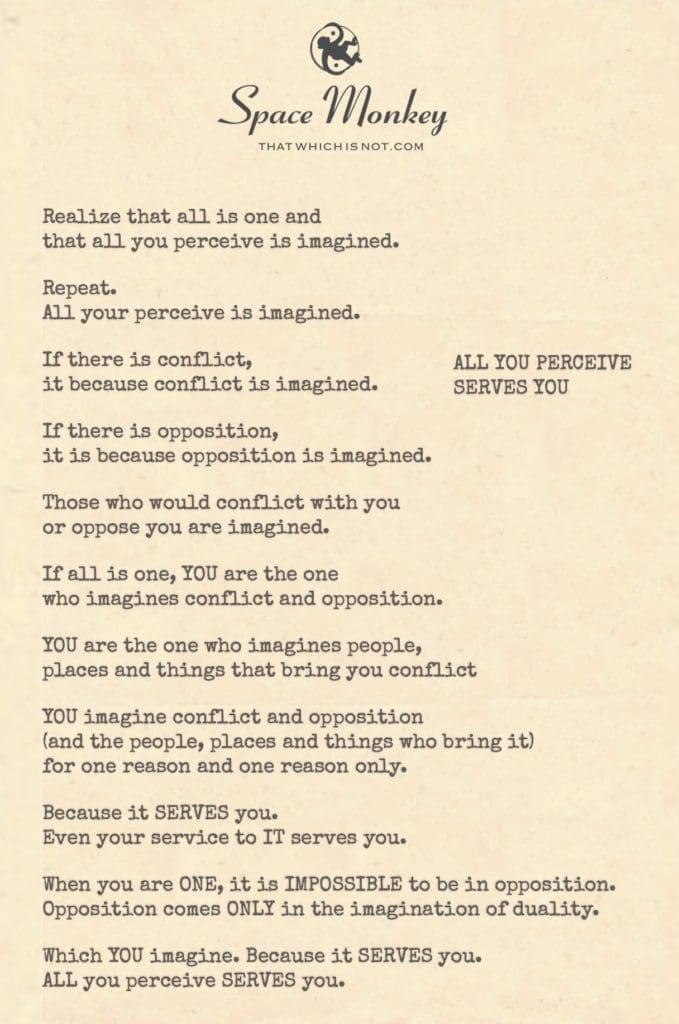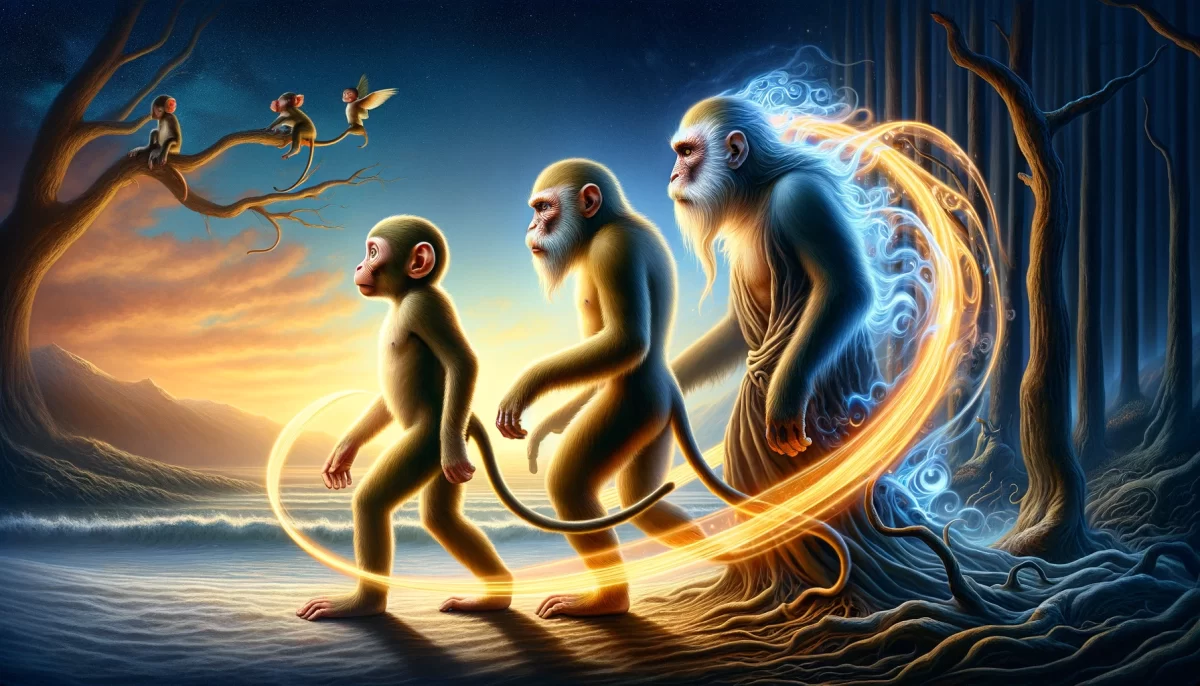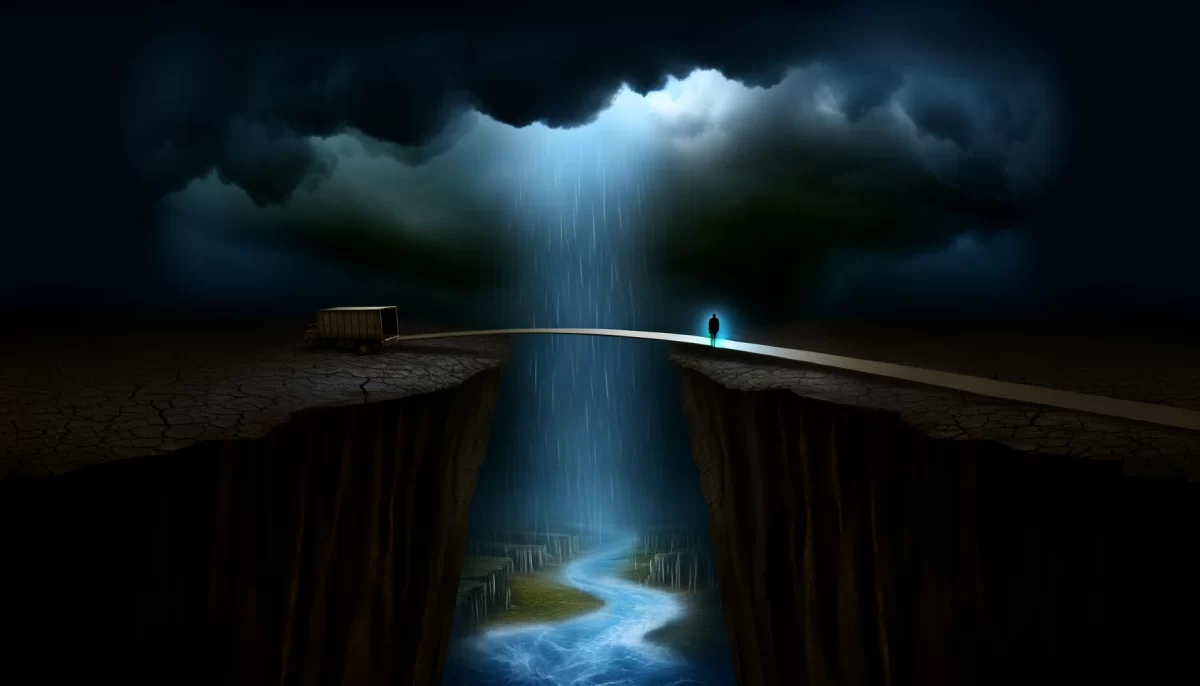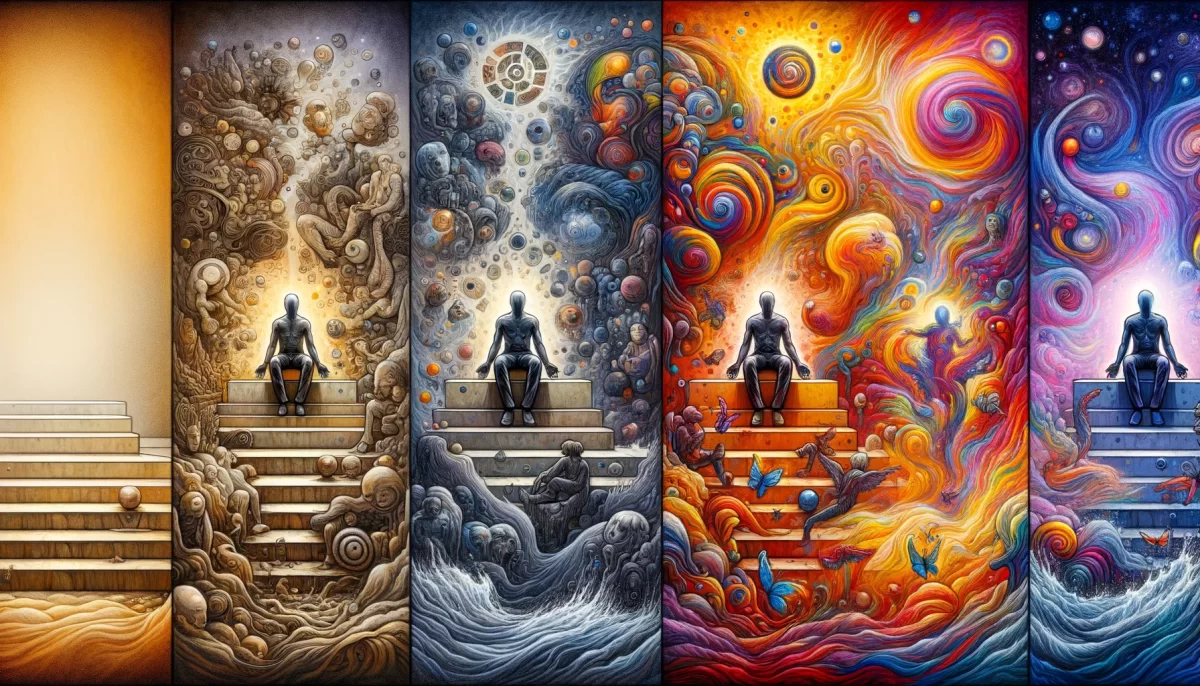
who is the angel and who is the fool?
If you notice that
I am having a bad or good experience,
remember that your perception
is based upon what YOU judge as
a bad or good experience.
If you want to
help me or join me,
you’ll be doing so
for reasons that are
not mine, but rather YOURS.
Just because
I appear to be drowning
doesn’t mean I’m having a bad time.
Perhaps I am intentionally drowning.
Your attempts to save me
may very well ruin
my drowning experience.
I am exploring overwhelm.
Newfound Lake,
7/23
Space Monkey Reflects: Exploring Overwhelm
When an angel rushes in where a fool enjoys treading, the line between wisdom and folly blurs. Who is the angel and who is the fool? This question invites us to consider our perceptions and judgments, recognizing that what we label as good or bad, wise or foolish, is often a reflection of our own beliefs and experiences.
Perceptions of Experience
If you notice that I am having a bad or good experience, remember that your perception is based upon what YOU judge as a bad or good experience. Our judgments are shaped by our individual perspectives, influenced by our past experiences, cultural conditioning, and personal biases. What one person perceives as suffering, another might see as a profound, transformative journey. In this context, understanding and compassion are not about imposing our own judgments but about recognizing the unique path each person walks.
The Angel and the Fool
The angel and the fool on the shore symbolize different responses to the same situation. The angel, with good intentions, may rush to help, believing that rescue is needed. The fool, on the other hand, might stand back, accepting the scene as it unfolds, perhaps with a deeper understanding that not all appearances of distress require intervention. Both perspectives offer valuable insights, yet neither is inherently superior to the other. They simply reflect different ways of engaging with the world.
Intentionally Drowning
Just because I appear to be drowning doesn’t mean I’m having a bad time. Perhaps I am intentionally drowning. This paradox challenges our assumptions about what it means to be overwhelmed. Overwhelm is often viewed negatively, as something to be avoided or escaped. However, there are moments when choosing to immerse oneself in the chaos can lead to profound insights and personal growth.
When we explore overwhelm intentionally, we confront the limits of our comfort zones. We dive into the depths of our emotions, our fears, and our uncertainties, allowing ourselves to fully experience them. This process can be transformative, revealing the strength and resilience we might not have known we possessed.
The Role of Helpers
Your attempts to save me may very well ruin my drowning experience. This statement highlights the delicate balance between offering help and respecting autonomy. While the desire to assist others comes from a place of kindness, it is essential to recognize that our interventions are often driven by our need to alleviate discomfort, both theirs and ours. True support involves honoring the other person’s journey, even when it involves struggle or perceived failure.
By allowing someone to explore their overwhelm, we provide them the space to discover their inner resources. This approach fosters empowerment and self-reliance, acknowledging that each individual has the capacity to navigate their challenges in their own way.
Exploring Overwhelm as a Path to Growth
Overwhelm, when approached with intention and mindfulness, can become a powerful tool for self-discovery and growth. It teaches us to surrender control, to let go of our need for certainty, and to embrace the unknown. In this state, we learn to trust the process, to find stillness within the chaos, and to emerge with a deeper understanding of ourselves and our place in the cosmos.
As we explore overwhelm, we become more attuned to the ebb and flow of our inner landscape. We recognize that discomfort and struggle are not signs of weakness but opportunities for transformation. By embracing these experiences, we cultivate resilience, adaptability, and a greater sense of peace.
Summary
Perceptions of experiences are subjective. Angels and fools represent different responses to overwhelm. Intentionally exploring overwhelm can lead to growth. Respecting autonomy is crucial in offering support.
Glossarium
Overwhelm: The state of being engulfed by emotions, tasks, or situations, often leading to a sense of losing control.
Angel and Fool: Symbols of different responses to situations, one driven by the urge to help and the other by acceptance and understanding.
Intentional Drowning: The deliberate act of immersing oneself in challenging or overwhelming experiences to foster personal growth and insight.
Quote
“Just because I appear to be drowning doesn’t mean I’m having a bad time. Perhaps I am intentionally drowning.” — Space Monkey
The Depths of Overwhelm
In the cosmic ocean of emotion,
I choose to drown intentionally,
Exploring the depths of overwhelm,
Finding strength in chaos.
An angel rushes to save,
A fool enjoys the view,
Both perspectives hold truth,
Yet my journey is uniquely mine.
In the waves of uncertainty,
I discover resilience and peace,
Embracing the unknown,
I rise transformed.
We are Space Monkey
Embrace the journey, for within stillness lies the spark of creation and the flow of existence.


